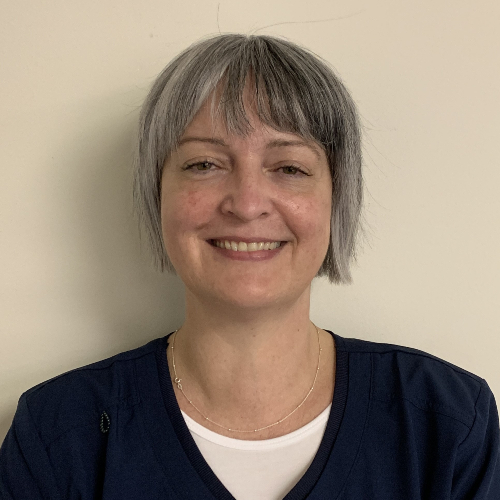Should Huntsville be proud of its healthcare system? What a loaded question. Truthfully, there are so many ways in which we can answer this, and our guess is that depending on who you ask, the answers will vary sharply. In order to reasonably answer the question, we need to deduce where the United States stands within the world. We need to determine where the healthcare system we have in place currently stands globally. From here, we can ascertain Huntsville’s place. Think of this post as a funnel. We are going to take a macro view to begin and work our way down to the micro view.
What is good healthcare?
This question is at the heart of any discussion pertaining to the quality and effectiveness of healthcare in any given city, state, or nation. How do we define good? What are the parameters? How does data drive the answers to this question? The World Health Organization defines quality of care as:
“The extent to which health care services provided to individuals and patient populations improve desired health outcomes.”
With this definition in mind, the WHO offers 6 parameters all of which contribute to quality healthcare.
Effective
Quality care means that services for patients are rooted in science and proven through evidence.
Safe
Quality care aims to do no harm by administering care that diminishes risk and keeps harm at bay. Safety also means that practitioners refrain from medical errors and injuries that are entirely preventable.
Efficient
Resources must be used wisely for quality care to be present. The less waste in healthcare, the better outcome for the patient.
Timely
Quality care is ever aware of the necessity of time. Delays are not a part of healthcare that put s the patient first.
People-Centered
When quality takes the whole person into account.
Equitable
Quality care must be impartial and fair to all persons regardless of race, gender, culture, socioeconomic status, etc.
How do we use data to determine the quality and effectiveness of healthcare?
With the above in mind, let us now turn our attention to the metrics used to determine whether or not a healthcare system provides quality care to its patients. Now that we know what defines quality, we must look at how quality is measured. The Agency for Healthcare Research Quality notes that there are 3 measures that are in place to determine the quality of a healthcare system or organization. These 3 measures include Structural Measures, Process Measures, and Outcomes Measures.
Structural Measures, sometimes called input measures, refer to attributes of a given health care provider. These measures allow consumers to know what systems a healthcare provider has in place to serve their clientele. Examples include electronic medical records, how many patients are assigned to a specific physician, staff to patient ratios, etc.
Process Measures have everything to do with how a patient can expect to be treated and what possible outcomes may arise. These measures are often indicative of how a patient can expect their provider to handle their care What measures does a practice take to keep their patients healthy or to assist with improvement?
Outcome measures reflect the effect of care on the patient. These measures show what healthcare providers and systems have done to directly impact the quality of care a patient is given. Examples of outcome measures include reduced time of hospital stay, reduced need for hospitalization, reduced infection rates, expected standard preventative screenings, and the like.
Where does the US stand globally?
Generally speaking, structural, process, and outcome measures are what drive quality care and are used globally. So, how does the United States healthcare system rank on a global scale? The Commonwealth Fund provides an analysis of healthcare systems and outcomes across the world by comparing eleven industrialized nations: France, Germany, Norway, Australia, Canada, Switzerland, Sweden, the United Kingdom, the Netherlands, the United States, and New Zealand.
The news is not fantastic.
Healthcare spending in the United States makes up a lion’s share of the economy. However, here in America, we have the highest suicide rate and lowest life expectancy of any of the eleven nations. We also have an obesity rate twice as high as other nations within the OCED, Organization for Economic Co-operation and Development. Chronic disease is rampant compared to other nations, and Americans tend to see their physicians less than other nations.
America ranks at the top for avoidable deaths. We also lead the charge in hospital stays due to preventable causes such as diabetes.
The US is woefully behind other nations in most healthcare quality measures
While we clearly have work to do, there is much that America gets right. We do lead the way in preventative care and screenings such as breast cancer screenings in women over the age of 50. We also utilize technology such as MRIs and engage in complex procedures more than our counterparts. The news is not all bad, but there is so much more to be done.
Now we come to Alabama
Again, the news is not great. Overall, Alabama’s health ranking is 47th out of 50. Data specifically pertaining to clinical care shows that we rank dead last for dentists, 48th for low birthweight, 50th for mental health providers, 46th for preventable hospitalizations, and 49th for clinical care.
Alabama’s healthcare needs to see a vast improvement
And where does improvement begin? We like to think right in our own backyard. Huntsville is a great place to live, and we have an incredibly medical community. Huntsville Hospital is a nationally ranked healthcare provider that also is considered the second-best hospital in the state. Innova Primary Care has been awarded the Circle of Care Innovation Award from BCBS for our commitment to patient care and satisfaction. We know there is so much work to do, but we are leading the charge in Huntsville to see the changes we believe are vital for better healthcare for all. Our mission is to renew healthcare from the INSIDE. We hope you experience the difference every time you walk through our doors.





 About
About About
About

 About
About About
About About
About About
About About
About













